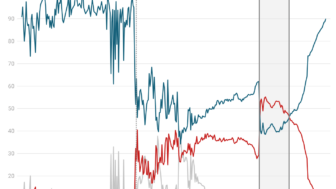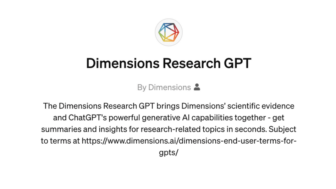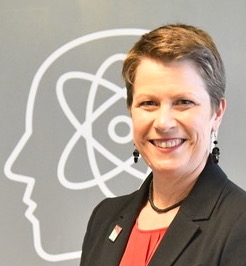
Daniel Hook
Daniel Hook is CEO of Digital Science, co-founder of Symplectic, a research information management provider, and of the Research on Research Institute (RoRI). A theoretical physicist by training, he continues to do research in his spare time, with visiting positions at Imperial College London and Washington University in St Louis.
Articles by Daniel Hook
Launching a new way to interact with scientific content on OpenAI’s ChatGPT platform
Digital Science releases its first custom GPT on OpenAI’s ChatGPT platform - Dimensions Research GPT - as a free version based on Open Access content and an enterprise version calling on all the diverse content types in Dimensions from publications, grants, patents and clinical trials. In alignment with our goals to be responsible about the AIs that we introduce, we explore some of the steps that we’ve taken in its development, explain our key principles in developing these tools, and make the context of these tools clear for the community that we intend them to serve.
The Lone Banana Problem.
Or, the new programming: “speaking” AI
Or, the new programming: “speaking” AI
The effects of new technology are seldom either solely positive or solely negative and, as such, there is a responsibility that sits with those that develop technology to consider how it will be used. Underlying that responsibility sits a need to deeply understand technology. The recent rise of Large Language Models (LLMs) and its rapid adoption begs many questions about whether we understand the technology and whether we understand how it will impact us at a cultural, societal, or economic level.
When I have written before on this topic I have noted that it is not the large biases that are concerning to me, rather it is the subtle biases that are difficult to detect that I think should be of more concern. I found recently what I regard to be an excellent illustration of the phrase that I have chosen to describe the output of AI. I call this the ‘Lone Banana Problem’.
Tinker, Researcher, Prompter, Wizard
Until six months ago most of us probably hadn’t placed the words “prompt” and “engineer” in close proximity (except possibly for anyone involved in a construction project where a colleague had arrived to work consistently on time). Today, a “prompt engineer” is one of a new class of emerging jobs in a Large Language Model (LLM)-fueled world. Paid in the “telephone-number”-salary region, a prompt engineer is a modern day programmer-cum-wizard who understands how to make an AI do their bidding.
The importance of adding context
Adding context is one of the most important things that we do at Digital Science, whether that be through the tools that we make available to the research community while they’re making decisions, carrying out research or communicating their findings, or through our direct outreach and engagement with the community such as on our blogs and in our reports.
TL;DR is not just a place to write our thoughts – it is a conversation. It is at once a place for us to test ideas and to showcase methods and techniques, and at the same it is a place to connect with a community, to receive feedback and so to better understand our context.


































